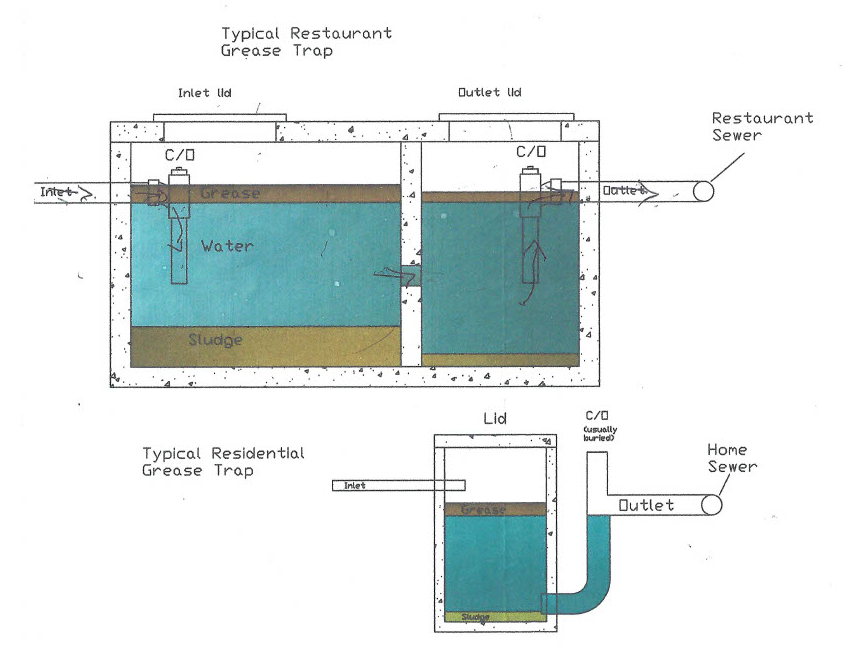Useful Grease Trap and Interceptor Information
Commercial establishments that serve food must have a grease trap (interceptor) to retain fats, oil and grease (F.O.G.) contained in water that passes thru drains before discharging into the city’s sewer and wastewater systems. Periodically, it is necessary to physically remove the F.O.G. from these traps or interceptors. Regular grease trap maintenance from a qualified and experienced company, like Restaurant Rescue, Inc., will help keep kitchen drain lines from backing up, or experiencing potential shutdowns brought on by overflows or fines. Give us a call today to get started! We can’t wait to meet you and see how we can help!
- Knowledgeable and Friendly Servicemen
- Fully Insured & Licensed
- 24 Hour Scheduling
- Work with City Inspectors & Plumbing Companies
- Services the Greater Denver Metro Area
- Free Estimates
- Owner Operated
What is a Grease Trap & Why Have it Serviced?

Any floor drain that might direct FOG into the wastewater stream, including kitchen sinks, dishwashers, garbage disposals, and disposals, must pass via a grease trap. As depicted in this picture, heavier particles sink to the bottom while grease and oils float to the top. Grease and solids are kept out of the water stream by the water flowing through the exit pipe. Layers of oil and silt accumulate over time and, if unchecked, may block the water outflow or push its way into the sanitary sewer system.
Superior Cleaning Process
The technicians from Restaurant Rescue, Inc. empty your grease trap. This procedure uses no chemicals and excludes cleaning or unclogging the pipes, which should be handled by a plumbing company with experience.
Reach Out Today!
BROWSE OUR WEBSITE
BUSINESS HOURS
Call For Availability









